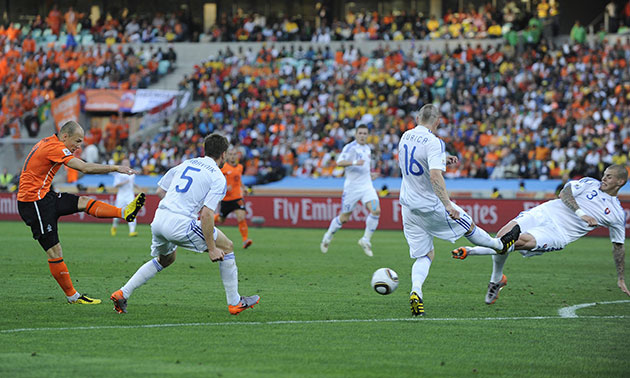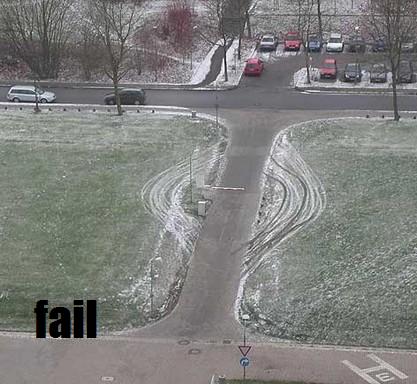Don't offer Joe Johnson $125 million over 6 years unless you're absolutely sure he's not going to accept the offer and even then only offer Joe Johnson $125 million over 6 years if you're preoccupied with managing perceptions rather than winning basketball games.
Signing Joe Johnson to a max deal will necessitate making future decisions based on finances rather than basketball all in the pursuit of keeping hope alive for the opportunity to get beaten soundly in the second-round. Pushing up against the luxury tax in the short-term and sacrificing future cap flexibility throughout the prime of the careers of Josh Smith and Al Horford so as not to lose a player who, good though he is and has been, projects to be the team's third-best player before the half this hypothetical contract expires is not in the best interests of the franchise.
And here is Peachtree Hoops:
It's become clear, in all of these conversations, that Joe is a fallback plan piece, a Plan B or C, to all these teams that have cleared a path for the real big hitters of this free agency forum. Michael Wilbon, during the course of free agent discussion on ESPN's Pardon the Interruption, mentioned that Johnson "isn't a #1", but as a #3, he'd be great! Wilbon is not alone around the league on this assessment.
Wonderful. So now, as the Hawks maintain that they will do all they can to resign Johnson, it stands to mention that the Hawks might end up mortgaging the next six seasons for a player who is better suited as a second or third option on a team today, at 29 years old, but get paid like a #1, and be paid that way until he's 34. Scary.
Joe is/has been a great player, but has always been miscast as some sort of superstar, even in star-starved Atlanta. His numbers, beyond All-Star game count, has never proven that reputation out. He's a great shot maker, plays a very physical brand of basketball, but it seems the rest of the league and those who watch the NBA is getting around to the same conclusions as Bird Watchers have....Joe is not a max player, doesn't quite rise to the level of a top-shelf free agent, candidate, and is, at best a fallback plan for a team that has the financial resources to swallow an above market contact well beyond the years of peak performance.
There was consensus in the USMNT blogosphere that starting Ricardo Clark and Robbie Findley was a bad idea; there is consensus in the Hawks' blogosphere that spending max money on Joe Johnson is a bad idea. This is not an overreaction to the Orlando debacle. Joe has been an asset to this franchise. He has played hard, scored a pile of points, worked his tail off on defense, and taken the team as far as he could. I'll always have affection for him for taking the team from 13 wins the year before his arrival to 53 this year. The Hawks got his best years. However, spending $119M for a player who has logged a ton of minutes at a position that sees players fall off a cliff around 31 or 32 is terrible business. Let the Knicks make that mistake.





